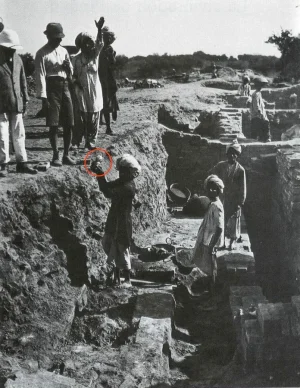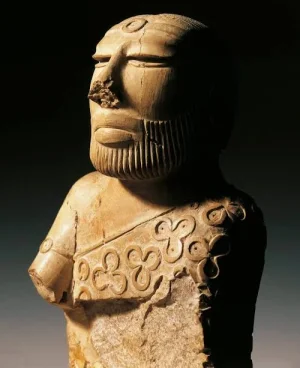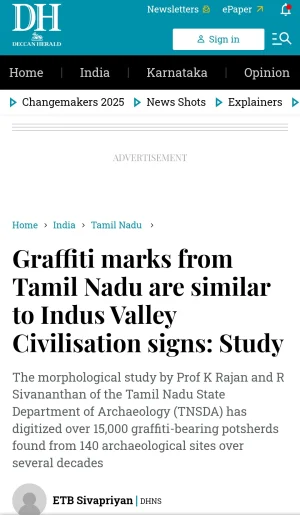so spent some time watching this and other presentations of his on this new book of his, listing out a few highlights:
- Indian sphere of influence was 6000 km to the west in rome, and 3000 km to east in SE asia.
- chinese silk road does not make sense, and a recent invention of 20th century. ancient Indian shipping lanes carried a lot of weight and in faster times than what camels would have carried along what CCP's chini silk road map claims.
- after cleopatra died and romans got control of egypt, trade with India opened up because of their control of nile. traders were even transporting elephants to rome, meaning ships were that huge.
- after rome fell and gold stopped coming in from the west, tamil trading guilds started looking east, that's when focus on SE asia started and hindusm spread towards east.
- he attributes spread of buddhism in china as court religion, to huwen tsang who we read about in our school text books. he became an advisor to a young concubine who went to become only chinese empress in their history. budhism was adopted as part of power struggle in the emperor's court against confucius theology.
- he traces the journey of hindu numerals and zero from aryabhatta->arab lands-> mediterranean->fibonacci->europe--> modern accounting--> and back to India to colonise .
and other anecdotes as well.
and as expected, in almost every presentation he made sure his audience knows that he does not like modi and Indian "RW". and for some reason, he doesn't want to acknowledge sushruta samhita, considering he has been living in India for 40 years, even i read it by my 8/9th class because my grandfather had a copy in his library.
Few minor corrections/additions:
1. Chinese silk road does make sense, but not overland through persia. the simple rule of thumb for shipping that has held true for 2000+ years of technological development, is that it costs 10 times as much to ship freight of X kg via land than via water. This means, the Chinese silk roads actually terminated in Afghanistan/Peshawar, as the two main lines of trade ( Wakhan corridor and Aksai Chin kara koram pass road) terminate on the Indus, from which goods are sailed down it and through the Arabian sea to the west. This is where Periplus of the Erythrean sea mentions the cities of 'barbaricum, minnagora' in Sindh as export hubs. This is also why all the 'western empires' in Indian subcontinent - from Indo-Greeks to Kushans, Indo-Parthians, Indo-Scythians, etc. ALL dominated Sindh before they tried moving into the ganges plains, because they needed to secure this trade route and its revenues first.
2. unlike India, Chinese exports were not as diverse: texts like those from Pliny the elder, Livy, Diodorus Siculus etc. mention a host of variety of goods flowing in from India : spices, steel, cotton, sugar, woven cotton, dyes and jewellery, while the mentions of goods from China is pretty much only Silk and porcelain. The porcelain trade that we know from historical times from China ( as in the last 700 years), is the main reason Chinese started to discover the sea routes to India and settle in SE Asia, as porcelain transport is notoriously difficult by land - they are breakables and constant jostling, start stop etc of caravan trains means lots of breakage. Sea routes solve this, which is why the Chinese silk route actually merged with the Indian trade route - you get to Indus from China means rest of the way your porcelain is safe and it gets to float on water.
So it would make sense that the bulk of the trade route is actually the Indian trade route. its also bleedingly obvious, because Pliny the Elder spends his whole life whining about trade deficit with India and turns out to be prophetic, saying that it would one day ruin Roman Empire, as Rome's only export to India were some wine and lots of olive oil. He even quotes a number - over 100 million sistercii per annum cost, which translates to the same cost of about 75,000 legionaries per annum ( their pay + expenses for deployment). Given that Rome at its peak fielded about 400,000 legionaries and Roman budget was 60% for military expenses, that is a huge amount.
3. his attribution of buddhism is wrong and likely due to not knowing Chinese history well. Buddhism spread mostly via bodhidharma and the Xinjang to China transmission, as this Chinese trade route meant that Xinjang region got culturally,diplomatically and monetarily linked with the Gandhara/Kashmira region of India and this is the avenue of the India-->Saka spread of buddhism.
Keep in mind that these regions were subject to a continuous power struggle between the Han Empire and Kushan Empire between 50-150 CE, after which the Han and Kushan empire both collapsed and in the subsequent ' 3 kingdoms' period, these Saka kingdoms in Tarim Basin grew to be diplomatically adept at growing close to the 3 chinese kingdoms, as a means of power balancing and its during this three kingdoms period (200 CE to like 500 CE, roughly my Chinese dates are a bit shaky) that Buddhism enters China, through this Saka route in Tarim Basin.
xuan zong (Huen Tsang as anglos write) came around 600-650 CE period, around the time of Harshavardhana's rule BECAUSE he was a buddhist AND a beurocrat in China, tasked with finding and retriving/translating more of Buddhist scrolls for the Emperor of his time ( the shortlived Sui Dynasty, IIRC).
Buddhism basically starts a long history in China, ranging from brief periods of dominance to mostly secondary status in power struggle with Confucianism. And by the time of the Manchus, Buddhism + Confucianism develops a uniquely sexist nature : In Chinese society, most buddhists are women, most confucians are men. That is how 'Chinese buddhism do'. Buddhism is seen as the way of the women, as in way of compassion, forgiveness, love and peace, but Confucianism is seen as the way of men, where laws, consequences, big danda, carrots, etc. type of ruthless statecraft is seen as supreme.
And China basically 'learns its lessons' with Buddhism during the Tang dynasty's fall, which basically was the most powerful and opulent native Chinese dynasty in history that at the height of its power got stabbed in the back by one of the shining examples of 'multicultural integration' by a Soghdian general named Wang Mang or something and China being mostly officially buddhist at this time shit the bed and Tang limped on for another century and half but never recovered from their own goal and from that point onwards, the Chinese state's official experiment with Buddhism ended, with Buddhism forever being 'chota bro' of Confucianism, come heaven or hell.







